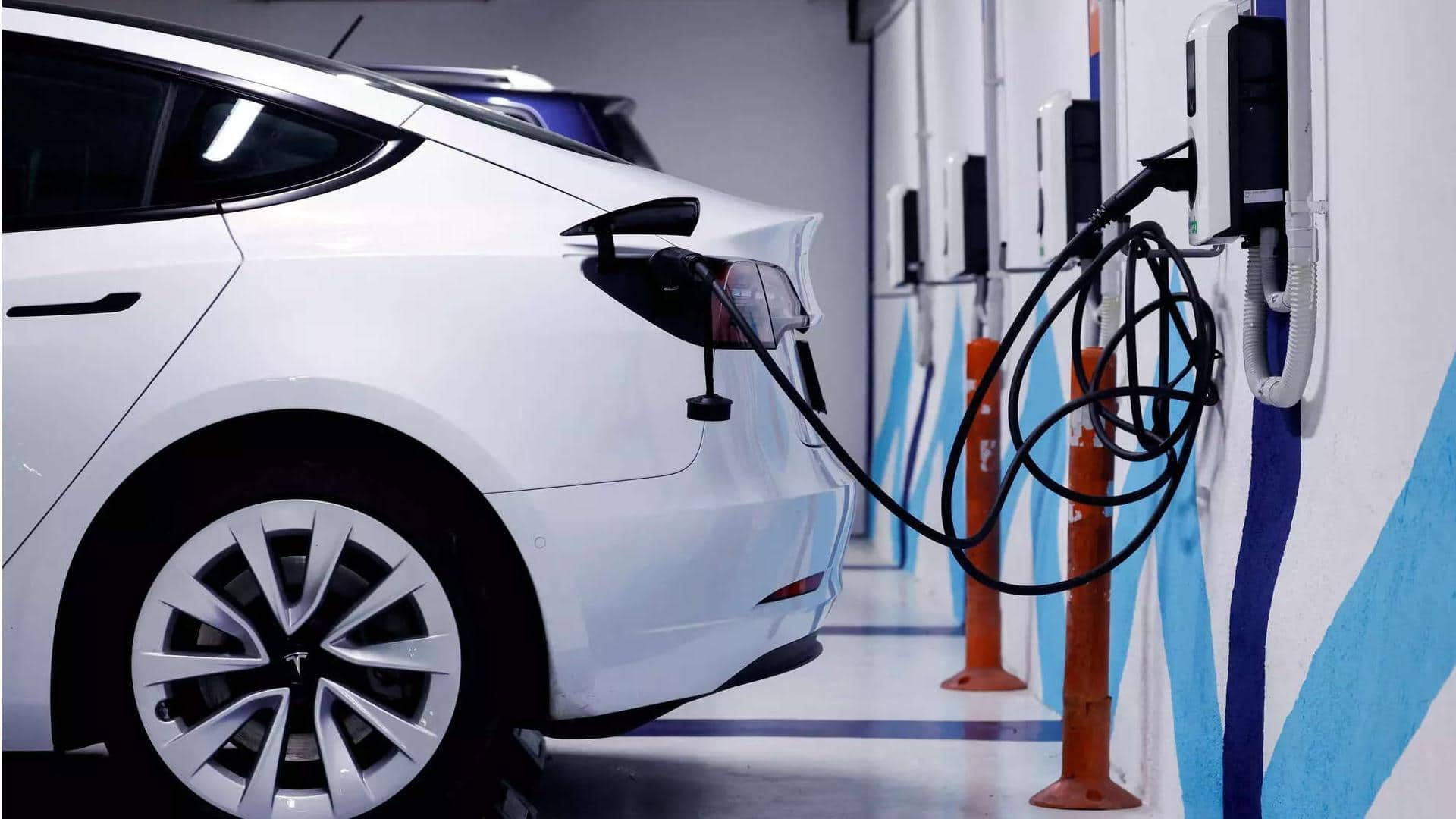
How India will reduce dependence on China for EV technology
What's the story
The Indian government has launched a major program to promote homegrown technology in the fast-growing electric vehicle (EV) segment. The move comes as part of the country's larger plan to become self-reliant and cut dependence on foreign supply chains, especially those led by China. The initiative is being led by the Department of Science & Technology (DST), under Anusandhan National Research Foundation (ANRF) Secretary and CEO Abhay Karandikar.
Strategic direction
ANRF's role in India's EV sector development
Chaired by Prime Minister Narendra Modi, the ANRF was established under the ANRF Act of 2023 and has been operational since February 2024. The foundation offers strategic guidance for innovation, research and development (R&D), and entrepreneurship in different sectors. It is responsible for developing a roadmap to promote research activities in academic institutions over short, medium, and long-term periods.
Ecosystem development
Fostering a homegrown EV ecosystem
The government's research arm, led by Karandikar, is working toward nurturing an indigenous ecosystem for the EV sector. This involves developing innovative battery technologies, power electronics, as well as charging infrastructure. "We have launched the program in all these three segments to propel indigenous manufacturing of electric vehicles and components," Karandikar stated.
Market growth
EV market potential and job creation
India's Minister of Road Transport and Highways, Nitin Gadkari, recently emphasized the country's EV market could reach ₹20 trillion. He also estimated that the sector could create almost 50 million jobs across its ecosystem by 2030. By the same year, India hopes to ramp up EV sales to 30% for private cars, 70% for commercial vehicles, 40% for buses, and a staggering 80% for two-wheelers and three-wheelers.
Infrastructure expansion
India's EV battery market and charging infrastructure
Industry forecasts indicate that the Indian EV battery market may touch $27.70 billion by 2028. This growth would require the installation of a minimum of 1.32 million charging stations by 2030. "We have received proposals for research and development (R&D), and after review, we will fund and we want to do it through industry-academia partnership," Karandikar revealed about their approach toward this expansion.
Funding allocation
ANRF's funding and future goals for EV technology
Karandikar revealed that ANRF has earmarked ₹14,000 crore over five years for this game-changing program. This translates to an annual investment of about ₹2,000-2,800 crore. He also detailed the foundation's short-term goal of developing battery technology components in three years. In the long-term, which is set for five years, the country aims to innovate in charging infrastructure and power electronics.